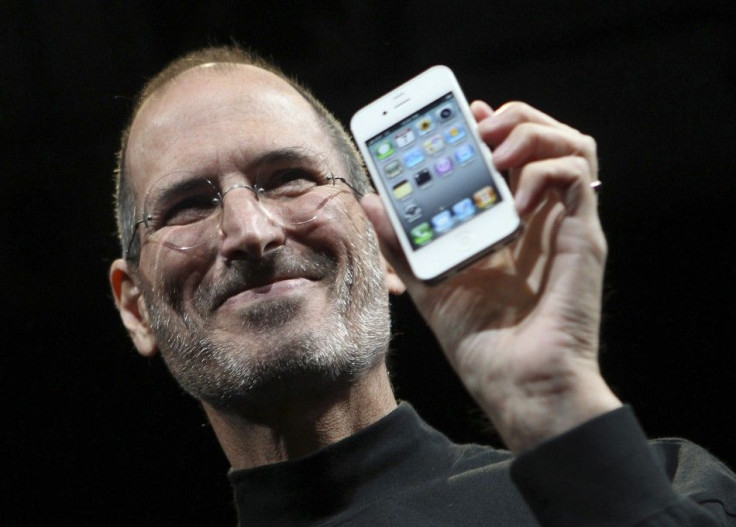Steve Jobs is Gone - Can Apple Still be Apple Without Its Guru?

We all know the shape - a small white rectangle with rounded corners, a screen, and a circular control. The first iPod debuted in November of 2001 and put all other portable music players to shame. It didn't try to be like the other guys, with their dubious interfaces and The Matrix-y black exteriors; instead, the iPod was its own kind of cool - obnoxiously so - with a minimalist white exterior and unapologetically Mac-centric interface design. In a way, the iPod was a representation of Apple founder Steve Jobs himself, though with the colors in reverse; the black turtleneck-bedecked CEO burst back into the collective consciousness, seemingly out of nowhere - at once brash, inspiring, alarming, arrogant and brilliant - to bring Apple back from the boring in the late '90s. Since the return of Jobs and his pirates of Silicon Valley, Apple shares have gone from strength to strength, at times trading at values upwards of $422 a share.
And now Jobs is gone, and the question on everyone's mind is: what will Apple be now?
Undoubtedly, Apple is in capable hands. There are few companies anywhere whose employees - in this case, their designers, programmers, and engineers - are as well respected in their fields as are those at Apple. The leadership remains, with the exception of the position of Chairman, intact. Lead product designer and Senior Vice President of Industrial Design Jonathan Ive, whose work on some of Apple's most famous products is being displayed at the Museum of Modern Art in New York, is still there; so is Scott Forstall, Senior V.P. of iOS, the young software brainiac who came over to Apple from NeXT and whose quirky personality and sense of showmanship have earned him comparisons to the late Jobs. Senior V.P. of Worldwide Marketing Philip Schiller's sticking around, as is Eddy Cue, recently promoted to the position of Senior V.P. of Internet Software and Services and now responsible for the overseeing of all of Apple's Internet services, including iCloud, the iTunes Store, the App Store, and iAd mobile. Last, but not least, newly appointed CEO Tim Cook has taken over at the wheel and, for the moment, seems to be doing an admirable job of keeping it on course.
Certainly, too, the existing infrastructure will keep the company chugging comfortably along through the release of next-generation iterations of current products - the iPhone 5 and iPad 3, for example.
But the cachet of Apple has never been its repetition of the tried-and-true. Apple under Steve Jobs has had an uncanny ability to make wildly popular products we never knew we needed in the first place. What's more, the Apple ethos successfully centered on the man himself in a way that corporate culture has rarely done. Apple is the Macbook and the iPhone, but it's also a rangy, bespectacled Jobs pacing a conference stage in a black turtleneck and faded jeans eliciting oohs and aahs from a captivated audience.
Only time will tell whether the idea of an organization - even one as ubiquitous in nature as Apple - is capable of capturing the public's imagination the way the single figure of Jobs managed to. For now, until its board appoints a new chairman, Apple, its shareholders and its fans will quietly be treading water and watching for the next pirate to take the helm.
© Copyright IBTimes 2024. All rights reserved.





















